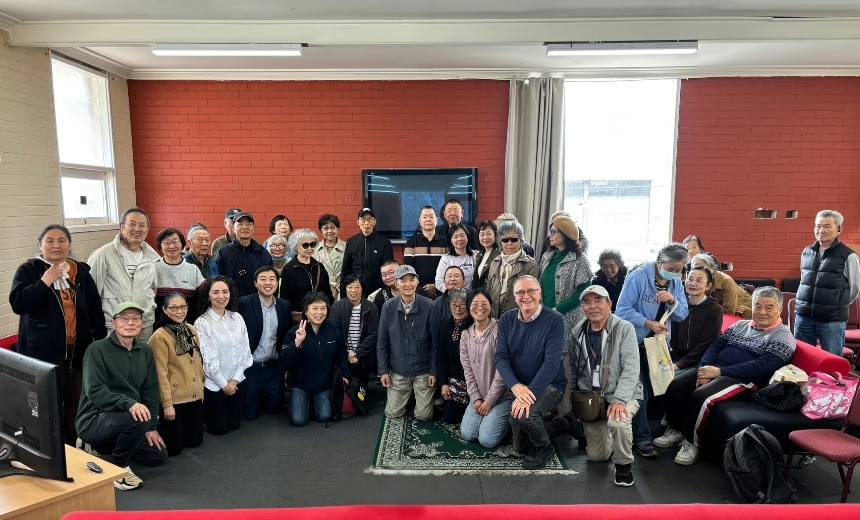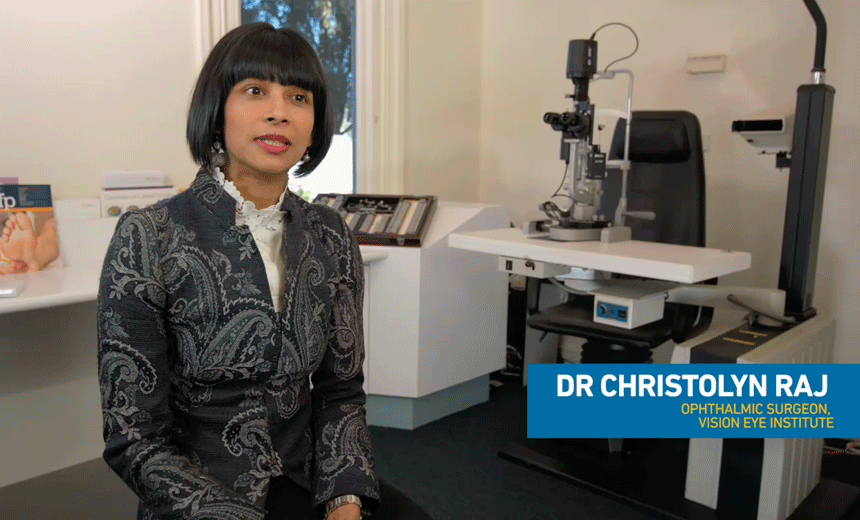Patient registration pre-verification
Do NOT use this form in an emergency – contact one of our clinics or your nearest hospital emergency department instead.
Some services may not be performed by your preferred doctor or at your preferred clinic. We will confirm this with you before making an appointment.
FAQs
What do I need to check before my appointment?
Please confirm the following details prior to your appointment:
- The length of time you are likely to be at the clinic
- Whether you need someone to accompany/drive you home
- Depending on your condition, we may use dilating eye drops to properly examine the back of your eye. These drops can cause blurry vision and increase your sensitivity to light for 4–6 hours. In this case, you will generally need to make alternative arrangements to get home.
- If you need to bring your glasses or glasses prescription from the optometrist
- If you need to stop wearing contact lenses before your appointment
- Contact lens use can change the shape of your cornea, which may interfere with some tests (e.g. corneal topography). This is particularly relevant to patients undergoing vision correction, such as laser eye surgery.
- Whether there are likely to be any out-of-pocket costs
- There may be fees associated with the consultation, as well as various eye tests and treatments.
Please also ensure you have completed the online patient registration form before you attend the clinic for your appointment.
What should I bring to the appointment?
To ensure your appointment runs as smoothly as possible, please bring:
- A referral letter from your GP or optometrist
- A referral is required to receive a Medicare rebate for the consult. Referrals are generally valid for 12 months from the initial date.
- Your Medicare card
- Your private health insurance card (if applicable)
- Your pensioner or concession card (if applicable)
- Your Veteran Affairs card (if applicable)
- A list of your current medications (including any vitamins, supplements or herbal medicines)
- Sunglasses (in case your pupils are dilated during your appointment)
- Payment for any out-of-pocket costs.
Please also ensure you have completed the online patient registration form before you attend the clinic for your appointment.
What can I expect during my appointment?
On arrival
The receptionist will ask for a current referral letter and information such as your contact details, referring practitioner and if you have private health insurance or a concession card.
Testing by the orthoptist
You will then be seen by an orthoptist. An orthoptist is a university-trained healthcare provider who diagnoses and investigates diseases of the eye and eye movements. Your orthoptist will take a medical history from you and use this to decide what, if any, testing is required. Many of these tests can be performed on the same day, but some may need to be scheduled for a later date.
Once the relevant tests have been performed, the orthoptist will provide these results to your ophthalmologist.
Consultation with the ophthalmologist
An ophthalmologist is a medical doctor who has undertaken further specialist training in disorders of the eye. During the consultation, your ophthalmologist will go over the relevant parts of your medical history, examine your eyes and review your test results. In many cases, a diagnosis can be confirmed during the consultation and a treatment plan agreed upon. Occasionally, further tests will be required.
After your consultation
You will be directed back to the reception desk to make another appointment (if required) or be discharged from the clinic (i.e. no further follow-up required).
Our clinical staff generally allow 2 hours for the consultation and tests – this may seem like a long time, but we need to be thorough to ensure the delivery of high-quality care and the best possible outcome for you.
We always endeavour to keep waiting times as short as possible, but please also note there may be times when our doctors and orthoptists run late due to unexpected emergencies. As registered medical specialists, all Vision Eye Institute doctors are required to attend to emergency patients (particularly in situations where there is a risk of vision loss). We appreciate your patience when this occurs and our staff will update you about any changes to your appointment time.
I have a simple problem – are all of these tests really necessary?
Depending on your initial symptom(s) or complaint, there are a number of standard tests we perform – even if it seems like a simple problem. While some tests may seem unnecessary, they help us to make the correct clinical diagnosis and determine the right treatment for you. It also saves time to perform these tests before you see the ophthalmologist so that you don’t need to re-join the test queue or return at a later date to undergo these tests.
Why isn't my procedure performed on the same day as my appointment?
Procedures often take time and require specialised sterilised equipment. If the procedure room or specialised equipment is not available at the time of your appointment, our reception staff will book your procedure in for another suitable time.
However, if you require urgent treatment (e.g. for a sight-threatening retinal condition), this is often performed on the same day as your consultation.
Will there be a wait prior to my appointment?
We book patients in a way designed to ensure maximum efficiency and keep waiting times to a minimum. However, our doctors are often referred emergency and urgent cases because we treat the full range of eye conditions. These patients require immediate attention and may be at risk of losing their sight.
Emergencies
All Vision Eye Institute doctors are registered and professional healthcare providers and have a duty of care to attend to patients who require emergency or urgent care promptly.
Therefore, there may be occasions when our doctors and orthoptists unexpectedly run over time. We understand that waiting for appointments can be frustrating, but please be assured that you would receive this same priority care should it ever be necessary.
Why can’t I be given a quote for surgery over the phone?
It’s important that you have a consultation and eye examination before we provide you with a quote because there are a number of factors that can affect the time, materials/equipment used and complexity of the surgery. During this consultation, your ophthalmologist will make a diagnosis, ensure there are no other issues with your eyes, discuss your treatment options plus the benefits/risks, and give you a detailed quote.
For example, there are a number of different lens options to choose from if you are having cataract surgery and the surgical technique may need to be modified if there is another eye condition present, such as glaucoma or diabetic retinopathy.
The optometrist has already performed these tests – why are you repeating them?
Delivering high-quality patient care is our priority. Sometimes this means we need to repeat tests that have already been performed by your optometrist. There are various reasons for this – e.g. sometimes our machines may provide more detailed information, or we may need to check whether your condition has progressed.
However, we only order tests that will assist us in diagnosing and treating your eye condition. If you have any questions about why a test has been ordered, please don’t hesitate to ask your orthoptist or ophthalmologist.
How much does a consultation cost? What other costs can I expect?
If you have a valid referral letter from an optometrist, GP or another specialist doctor, you will be able to claim a Medicare rebate for the consultation. The consultation fee will depend on whether it is an initial consultation or a review (i.e. follow-up consultation) and can also vary from ophthalmologist to ophthalmologist.
Other costs you may incur include:
- Diagnostic tests in order to thoroughly examine your eyes. These allow us to correctly diagnose your condition and determine the appropriate treatment plan.
- Laser or surgical treatment (if recommended). Your ophthalmologist or the reception staff will provide you with a detailed quote – please make sure you read this before agreeing to treatment. Some procedures may also qualify for a Medicare rebate and/or cover under private health insurance.
Please note that there have been recent changes to private health insurance legislation to help consumers better understand the different policies available. As a result, your level of cover may have changed.
Click here for more information about the recent private health insurance changes
Always remember to check your level of cover directly with your insurer before having a medical or surgical procedure – we can provide you with the item number if required.
Do you offer payment plans?
We offer interest-free, flexible payment options for laser eye surgery in partnership with humm loan and Latitude Gem Visa (credit card). Read our laser eye surgery payment plans factsheet to learn more.
We also offer buy now, pay later options for self-funded cataract surgery through SurgeryAssist at Vision Hospital Group day surgeries in partnership with humm* loan. Learn more about SurgeryAssist for cataract surgery and make an enquiry on the Vison Hospital Group website.
*Approval subject to credit assessment criteria. Fees and charges, terms and conditions and minimum purchase amounts apply. Credit provided by Once Credit Pty Limited (ABN 99 112 319 632, Australian Credit Licence No. 386194), a subsidiary of humm group limited.
Am I eligible for laser eye surgery?
Many people are suitable for laser eye surgery to correct vision problems due to short-sightedness, long-sightedness and/or astigmatism.
Laser eye surgery may be an option for you if:
- You are between 18 and 55 years old
- You have a stable glasses/contact lens prescription (no change in the last 12 months)
- You are generally healthy
- You are NOT pregnant, breastfeeding or trying to conceive.
Only a qualified eye care professional can determine your suitability for laser eye surgery. Even if you don’t qualify for a laser procedure, there are a number of other vision correction options available.
We offer free laser assessments with one of our optometrists or orthoptists – book your free assessment now
Will Medicare or my private health insurance cover any of the costs of laser eye surgery?
Medicare does not rebate any of the cost of laser eye surgery, apart from some of the cost of the pre-surgical consultation if you have a referral letter from a GP or optometrist.
Some private health insurers do offer cover for laser eye surgery.
- For example, BUPA Ultimate Health Cover and Medibank Gold Ultra Health members are entitled to 100% cover for a laser eye surgery procedure (3-year waiting period applies, excludes consultation fees and diagnostic tests).
- Medibank members with selected extras and packaged covers can also receive 15% off surgical fees if they have their procedure performed at Vision Eye Institute (there is no waiting period to access this offer).
We recommend you contact your health care provider to verify your level of cover.
BUPA members can call 134 135 or visit www.bupa.com.au.
Medibank members can call 132 331 or visit www.medibank.com.au.
Can I have laser eye surgery if I am pregnant, breastfeeding or trying to conceive?
Laser eye surgery is not recommended for women who are pregnant.
Pregnancy-related hormonal changes cause your body (including your corneas) to retain more fluid and swell. Some women temporarily become more short-sighted while they are pregnant. Medications given during and after surgery could also affect your unborn baby. We recommend waiting a few months after giving birth before having surgery, when your vision has returned to pre-pregnancy levels.
Some of the medications used for patients undergoing laser eye surgery may pass into breastmilk and potentially into your bloodstream as well. Therefore, it’s advisable to delay laser eye surgery until you have stopped breastfeeding. You should also wait at least 3 weeks after your procedure before trying to conceive.
What is the difference between a suitability assessment and a consultation for laser eye surgery?
Free laser assessment
A suitability assessment for laser eye surgery is performed by one of our orthoptists or optometrists. During this free assessment, we will perform a number of key tests to check whether you are in the treatable range for laser eye surgery. If we determine that laser eye surgery is an option for you, you can choose to proceed to the pre-surgical consultation with one of our highly experienced vision correction surgeons.
Laser consultation
The pre-surgical consultation involves comprehensive testing and measurement of your eyes followed by a thorough discussion with your surgeon about:
- Your visual goals and lifestyle needs
- Which laser eye surgery procedure is recommended for you
- The benefits and risks of surgery
- The costs of the procedure
- Your expected recovery period.
This consultation attracts a fee and is eligible for a Medicare rebate if you have a referral letter from an optometrist or GP.
Please note you cannot book a laser eye surgery procedure without having the pre-surgical consultation first.
What is the 'In safe hands' program?
As Australia’s largest private ophthalmology provider, our aim is to deliver world-class eye care to patients by focusing on the quality and safety of our services. We promise to provide a safe and comfortable environment for your medical care by focusing on three key areas: infection control, emotional safety and wellbeing, and a commitment to quality. All Vision Eye Institute clinics and day surgeries adhere to this quality and safety initiative, the In safe hands program – you can learn more here.
What safety precautions are in place in relation to covid-19?
Read our covid notice for details.
Service Brochures
-
 News Room
News Room
A recap of our 2025 Shared Vision Education program
Our SHARED VISION network for healthcare professionals delivered another standout year of education, hosting 32 CPD events, engaging 2,225 referrers, and providing 40 hours of learning. The sessions spanned clinical updates, case discussions, new treatment modalities and emerging technologies, each ...
19/12/2025
-
 News Room
News Room
Partnering with Sight For All to promote eye health in local communities
Vision Eye Institute (VEI) recently collaborated with Sight For All to deliver educational sessions about eye health and preventing vision loss at community outreach events in Melbourne and Sydney. Run by members of the VEI Clinical Relationships Team, the November ...
05/12/2025
-
 News Room
News Room
Our latest CPD events!
Here’s the latest roundup of Vision Eye Institute and Vision Hospital Group CPD events! As always, thanks to everyone who attended, our event sponsors and the dedicated team of staff and doctors who work tirelessly to put these events on! ...
14/10/2025
-
 News Room
News Room
Prof Sutton hands over presidency at ‘best ever’ AUSCRS
This year’s Australasian Society of Cataract and Refractive Surgeons (AUSCRS) conference – described by many as the best yet – marked the end of an era as Vision Eye Institute’s Prof Gerard Sutton stepped down from his role as Co-President. ...
29/07/2025



